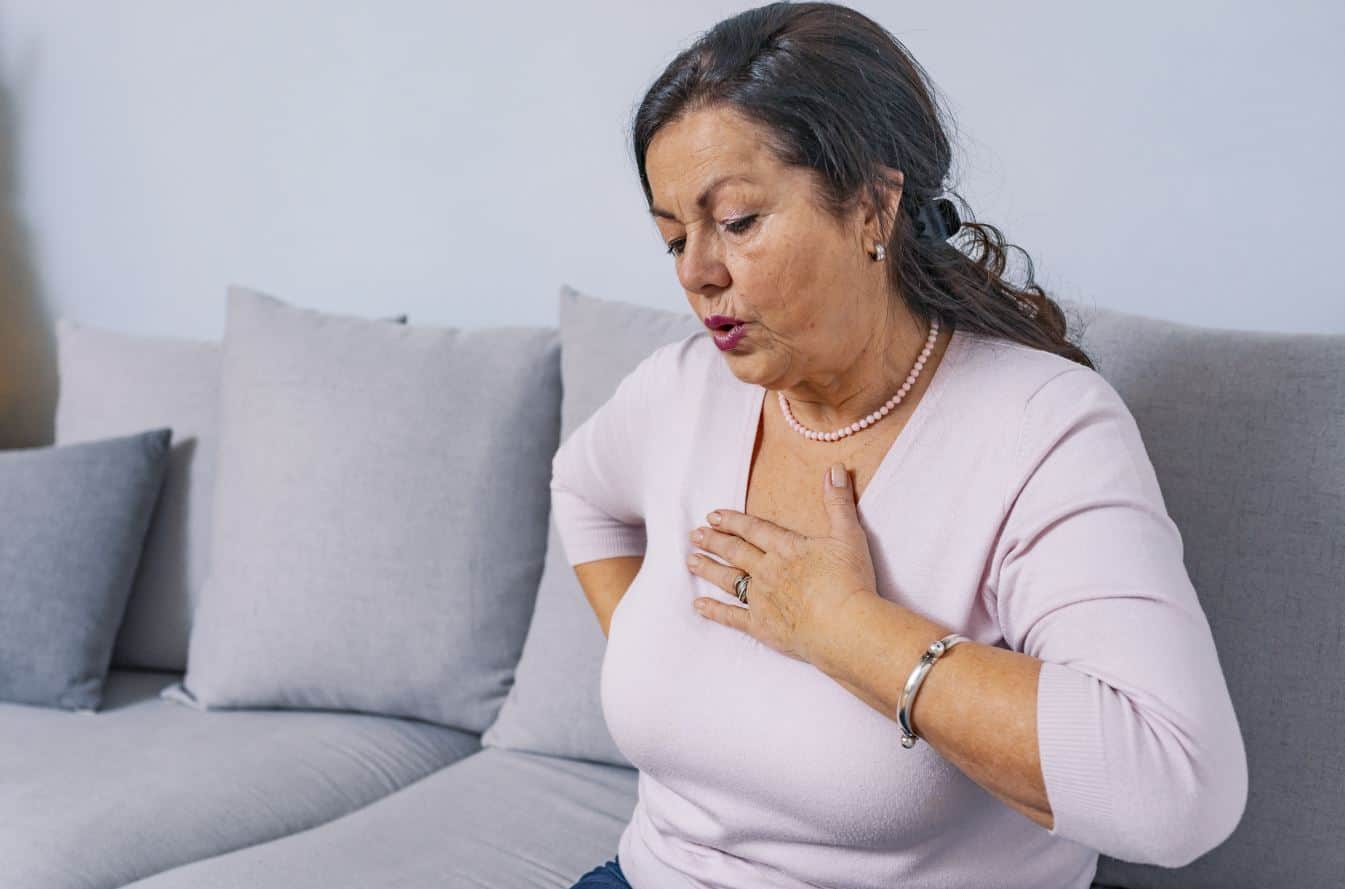Heart ailment is the most common condition in most seniors. It is also the leading cause of death. Additionally, heart disease, atrial fibrillation, and coronary artery illnesses are common reasons for most hospital visits and stay. Usual aging can cause the heart and blood vessels to stiffen, and this can lead to the heart ailment condition later on.
Men and women over 75 years old, the most typical heart condition is high blood pressure. Then, the next most common conditions include heart failure and the coronary artery. It is essential to know that systolic blood pressure or the top number in the BP reading increases with age. Studies on heart ailment have it that 9 in every 10 people have high blood pressure, which is also called hypertension.
Moreover, a person’s peak heart rate declines, as well, as he ages because of the changes in his heart’s ability to pace itself. Relatively, his mobility and function decrease as the muscles weaken. In order to slow muscle loss and keep one’s aerobic capacity, he needs to be physically active.
But what if the older adult can no longer be physically active due to old age? If you have the same question about your senior loved one, you’ll find the answers here. This article will help you determine the things to do and avoid in relation to a heart ailment. Read on!
Symptoms to Watch and Monitor
Senior patients, especially those who are over 70 years old, should not ignore the symptoms of a heart ailment. Below are among the most common symptoms of heart disease. They are usually the first symptoms once a person, particularly a senior, feels when he is suffering from heart disease:
- Progressive fatigue
- Too slow or too fast heartbeats
- Progressive fatigue
- Dizziness due to pain, discomfort or irregularity in the left chest
- Irregular, pain or discomfort in the left chest
- Dizziness because
Other Serious Heart Problems
For a more severe heart ailment, there are symptoms with terminology not common and clearly understood in layman’s term. Below are the medical terms with their corresponding explanation for most readers’ further understanding:
Angina Pectoris
Also known as ‘chest tightness,’ this symptom is a pain usually occurring in the left chest. It is a prevalent symptom in seniors and even frequently occurs more often with the advancing age. Though there is tightness in the chain, someone going through angina pectoris does not usually feel any pain.
Acute Coronary Syndromes (ACS)
ACS is also a heart attack, and it warns an individual of another heart attack in the future. Even though there is less mortality from this illness through these years, a study has it that 85 percent of people dying from coronary heart disease over 65 years old. Accordingly, in any senior, ACS may appear unnoticed unless he and his doctor are aware of the following signs:
- Sudden fatigue
- Shortness of breath
- Discomfort with a concentration in the stomach than in his chest
- Irregular heartbeat
- Fainting
- Profound sweating
Heart Failure
Shortness of breath, swollen legs, and fatigue are among the most common symptoms of heart’s failure to pump regularly. Relatively, heart failure incidences increase along with age because the heart becomes more susceptible to a variety of injuries. One of the underlying roots of heart failure is the diastolic dysfunction or the heart’s ability to relax with blood.
Irregularities in Heartbeats
Changes in the senior’s heartbeat are not primarily observed in the chest. However, often, patients experience and feel them over their neck arteries. More so, they become aware of the alterations due to sudden weakness, pallor, occasional dizziness or/and fainting. Specifically, slow heartbeat happens when there is a blockage in the heart’s electrical conduction system.
This symptom is treatable by a procedure which particularly involves implantation of a pacemaker. This procedure does not require age. Therefore, even older adults can undergo the said process. In fact, the device for such a method even brings a lot of benefits to the elderly.
What You Can Do to Prevent Heart Ailments
You can help a senior loved one with his circulatory system. But first, know the increase risk factors in cardiovascular disease which you can partly control. These are smoking, cholesterol levels, obesity, high blood pressure, and diabetes. Here are some of the things you can do to control congestive heart failure:
Make it a habit to eat a heart-friendly diet with reduced amounts of cholesterol and saturated fat. Additionally, it is also important to manage your senior loved one’s weight.
Listen to, and follow what your healthcare provider recommends your diabetes, high cholesterol, or high blood pressure treatment.
Encourage the older person to reduce or totally stop smoking. Even if they already quit smoking, men aged 65 to 75 years old who were smokers in the past need to undergo screening for aneurysms.
Exercise a lot as it helps prevent obesity. Relatively, this physical activity also benefits not just patients with heart failure but those with diabetes, too. Undoubtedly, regular exercise helps people with diabetes control or manage their blood sugar. Also, daily workouts help maintain the older adults’ abilities, not to mention reduce stress.

Be sure to check your parent or grandparent’s blood pressure regularly. An individual, specifically a senior, needs close monitoring of his blood pressure if he has:
- Heart or coronary artery disease
- Diabetes
- Kidney problems
- High cholesterol levels
- Other similar conditions
7 Heart-Healthy Foods for the Elderly

Naturally, older people, let alone seniors, never find it fun or exciting to take out their favorite foods from their diet totally. Therefore, instead of marking off-limits on specific foods, it is better to focus on the patients, reducing the consumption of unhealthy foods. Gradually, include these heart-healthy foods in the aging individual’s diet until you totally eliminate those that don’t help him health-wise.
1. Fish
Ensure that the fish he eats is always high in omega-3s. Examples of these are tuna, trout, mackerel, and salmon, among others.
2. Nuts
Giving the senior a handful of walnuts or almonds is a perfect way to satisfy his hunger, not to mention, help his heart. Also, these two types are among the healthiest options for snacks.
3. Oats
Oats are great to consider as nutritious comfort foods. Try toasting a small amount and make them as yogurt toppings. The older man or woman is at home is sure to find this an exciting treat. If the senior at home is not an avid oats eater, mix them into salads or trail mix to make its taste quite more interesting.
4. Green Veggies
Have him go for the greens. Specifically, spinach, collard/mustard greens, Swiss chard, and bok choy are the best choices for green veggies. If the older adult is not so fond of these healthy treats, make them as part of your salad and sandwiches instead of using lettuce.
5. Asparagus and Broccoli
Serve him more greens with asparagus and broccoli. These two are part of the greens mentioned earlier. However, they have to be set apart from the rest because they are both rich in powerful nutrients like folate, fiber, potassium, calcium, and vitamins C and E.
6. Fruits
Make fruits a staple in the menu. Oranges, papaya, and cantaloupes are all rich in potassium, magnesium, fiber, and beta-carotene. Because of their contents, these fruits are all perfect not just for the heart muscle but for one’s general health, as well.
7. Dark Chocolates
Give your loved one dark chocolates because undoubtedly, these sweet treats are good for the heart. The higher the cocoa percentage dark chocolate has, the better. Here’s the better news! If your loved one has diabetes, he can still eat dark chocolates. The protein and fiber rise with higher cocoa content and the sugar content decreases.
The Perfect Companion for Your Senior Loved One
Is there a senior loved one in the family who needs care, but you cannot provide it personally because of your busy schedule? Let our experienced caregivers assist you. Call Innovative Homecare Solutions, Inc. today (+1-630-225-0100) for your senior family member’s free assessment. With us, you will surely get the deserving pay for live-in care.

